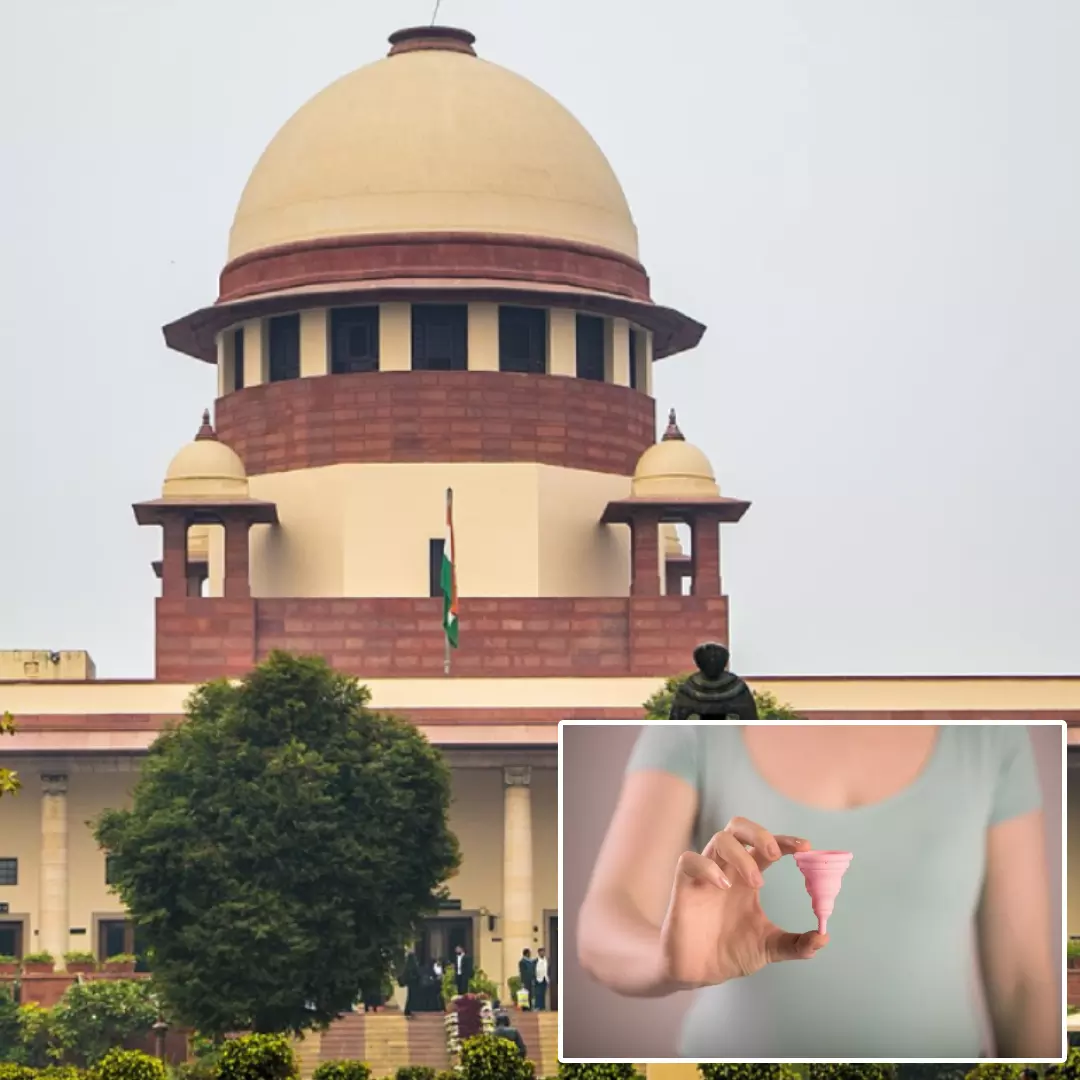SC Warns State & UTs To Submit Report On Menstrual Hygiene Policy
Writer: Ankita Singh
A literature lover who likes delving deeper into a wide range of societal issues and expresses her opinions about the same. Keeps looking for best-read recommendations while enjoying her coffee and tea.
India, 24 July 2023 12:34 PM GMT
Editor : Al Arafat Sherfuddeen |
Passionate writer about current events, politics and happenings nationally and globally. An agent of communal harmony and an ardent Arsenal fan.
Creatives : Ankita Singh
A literature lover who likes delving deeper into a wide range of societal issues and expresses her opinions about the same. Keeps looking for best-read recommendations while enjoying her coffee and tea.
The Supreme Court Monday warned the states, which are yet to submit their response to the Centre on forming a uniform national policy on menstrual hygiene for girls studying in schools.
The Supreme Court has issued a warning to states that have not yet submitted their responses to the Centre regarding the formation of a uniform national policy on menstrual hygiene for girls studying in schools. The court stated that if the states fail to submit their responses by August 31, it may resort to the "coercive arm of law."
A bench led by Chief Justice D Y Chandrachud directed the states and Union Territories (UTs) that have not provided their responses to do so positively by the specified date.
The bench, which also includes Justices J B Pardiwala and Manoj Misra, cautioned the states that further inaction could lead to legal consequences.
The Centre, represented by Additional Solicitor General Aishwarya Bhati, informed the court that it has only received inputs from four states so far—Haryana, Delhi, West Bengal, and Uttar Pradesh.
Policy On Menstrual Hygiene
In an earlier hearing on April 10, the Supreme Court had directed the Centre to create a Standard Operating Procedure (SOP) and formulate a national model to be adopted by all states and UTs for managing menstrual hygiene in schools. The court emphasized the significant importance of this issue and urged the Centre to engage with all stakeholders for implementing a uniform national policy on menstrual hygiene management, particularly in government and government-aided schools.
The case was brought before the court through a plea seeking directions to the Centre, states, and UTs to ensure the provision of free sanitary pads to female students in classes 6 to 12 and the provision of separate toilets for females in all government-aided and residential schools.
During the hearing on Monday, Additional Solicitor General Aishwarya Bhati informed the bench that despite the Supreme Court's earlier directions to frame or update a national policy on menstrual hygiene, responses were received from only four states—Delhi, Haryana, West Bengal, and Uttar Pradesh. She requested that the remaining states and Union Territories (UTs) be given one last opportunity to provide their inputs to the Centre.
Taking note of this, the bench directed all other states and UTs that have failed to submit their responses to do so positively by August 31, 2023. The court also ordered a copy of its order to be made available to the Chief Secretaries of the remaining states for compliance as per a report in News18.
The apex court appointed the secretary of the Ministry of Health and Family Welfare (MOHFW) as the nodal officer to coordinate with the states and UTs and gather relevant data for formulating a national policy on menstrual hygiene during the April 10 hearing. The court recognized that the MoHFW, Ministry of Education, and Ministry of Jal Shakti already have schemes related to menstrual hygiene management.
School Dropouts Due To Menstruation
The court emphasized the need for a uniform national policy that allows flexibility for states and UTs to make adjustments based on their respective conditions. It directed all states and UTs to submit their menstrual hygiene management strategies and plans to the Mission Steering Group of the National Health Mission within four weeks.
Additionally, the states and UTs were asked to indicate the appropriate ratio of female toilets for residential and non-residential schools in their territories, as well as the steps taken to provide low-cost sanitary pads and vending machines in schools and ensure their proper disposal.
The plea before the court highlighted the difficulties faced by adolescent females from disadvantaged backgrounds in accessing education due to lack of awareness and resources for menstrual hygiene. It stressed the importance of addressing these issues to prevent health problems and dropout rates among girls.
Menstruation continues to be a subject of gender disparity in India. Myths about menstruation are largely prevalent, forcing many girls to drop out of school early or be ostracised for the duration of their menstrual cycle every month. A 2014 report by the NGO Dasra titled 'Spot On' found that nearly 23 million girls drop out of school annually due to lack of proper menstrual hygiene management facilities, which include availability of sanitary napkins and logical awareness of menstruation.
The report also came up with some startling numbers. Over 70 per cent of mothers with menstruating daughters considered menstruation as dirty and 71 per cent adolescent girls remained unaware of menstruation till menarche. A 2014 UNICEF report pointed out that in Tamil Nadu, 79 per cent girls and women were unaware of menstrual hygiene practices. The percentage was 66% in Uttar Pradesh, 56% in Rajasthan and 51% in West Bengal.
Also Read: Manipur Govt Plans To Airlift Meiteis Amid Violence, US Expresses Concern Over Incident
 All section
All section















